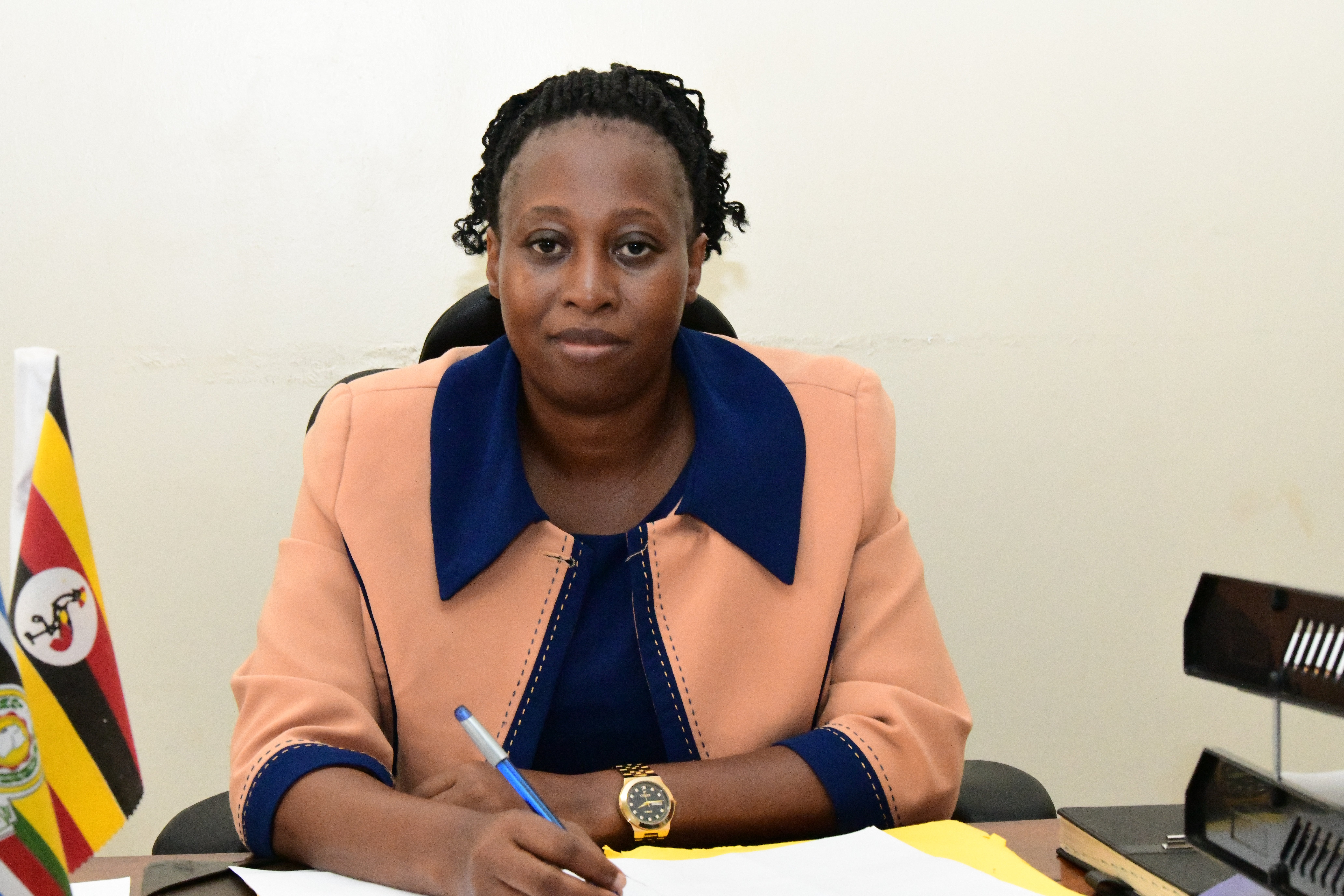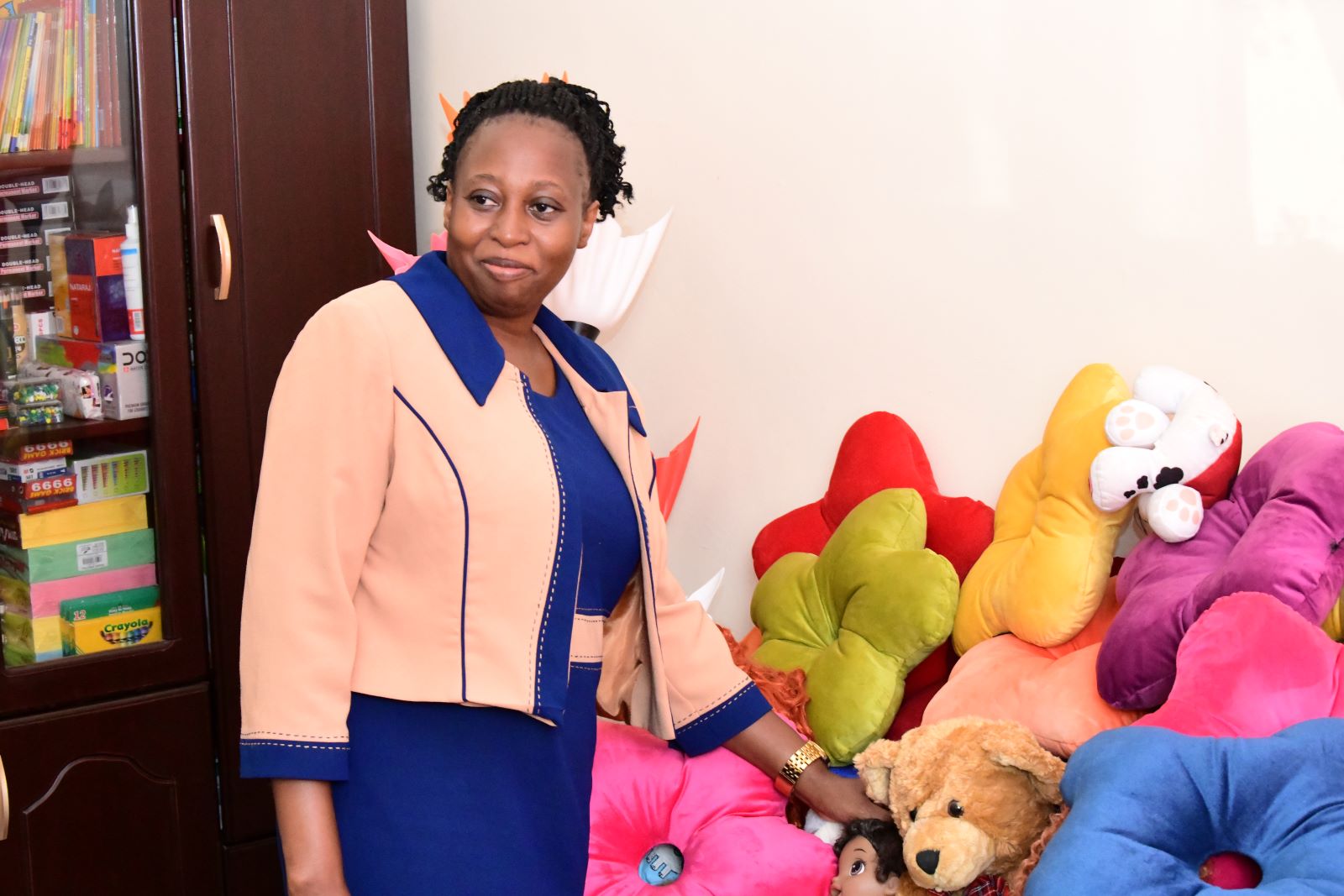Securing Justice for GBV Survivors in Uganda
Date:

In 2022, UN Women Uganda, with the support of the Austrian Development Agency, established victim-friendly rooms at the Chief Magistrate’s Court in Tororo to improve the handling of Sexual and Gender-Based Violence (SGBV) cases in the region. These rooms, equipped with refreshments, sanitary products, and child-friendly educational materials, are linked to the courtrooms through audiovisual technology to expedite the judicial process for SGBV cases. Her Worship Doreen Ajuna serves as the Chief Magistrate of Tororo District in eastern Uganda, where she oversees various criminal cases, including those related to gender-based violence.
"It is disheartening that 80% of the cases I handle involve defilement, with the majority originating from our neighboring district, Butaleja. This is largely driven by cultural and religious beliefs in some communities where girls as young as 14 are married off rather than being given the chance to continue their education. In September 2023 alone, 50 cases were heard, with over half related to gender-based violence in Tororo District," she says

Ajuna, says the adoption of victim-friendly procedures has brought about several significant changes. For instance, the use of anatomical dolls, particularly for children under the age of 8—who constituted most witnesses in the 2022 SGBV sessions—proved invaluable. These dolls helped illustrate sexual acts in court during witness statements without corrupting the child’s mind or forcing them to use culturally inappropriate language. Additionally, providing refreshments and meals to witnesses and victims ensured their comfort, enabling them to give clear and reliable testimony. Overall, victim-friendly services have greatly facilitated the collection of evidence that was once challenging to obtain.
Ajuna notes that in the past, many accused perpetrators of defilement would evade justice due to insufficient evidence. Additionally, she says the victim’s parents are in most cases silenced after conspiring with clan elders through bribes or intimidation.
Victim-friendly rooms were established in selected courts across the country with generous support from the Austrian Development Agency, as part of the access to justice initiative led by UN Women in collaboration with its implementing partners.
Since 2018, UN Women Uganda has collaborated with the JCU to tackle cases of gender-based under the Access to Justice initiative. During implementation, 9,497 community members were sensitized on legal aid services through mobile clinics and outreaches. The outreaches also involve sessions on sensitizing parents about the penalties for involving themselves in defilement cases.
Ajuna however, says that despite these improvements, there is a long way to go in tackling gender-based violence. She cites the entrenchment of cultural beliefs in some communities as one of the stumbling blocks that undermines women and slows down their progress realize equal rights.